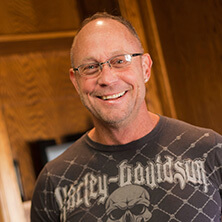
Stopping Shame Before it Stops Us
Written by Craig Rogers, Posted on , in Section Relationships That Matter
Stopping Shame Before it Stops Us
Shame is a very powerful emotion. But very few people talk about it, and who can blame them? Everyone has things that they’ve done or that have happened to them that they aren’t proud of. But Dr. Brené Brown, PhD, says that shame is the most human, primitive, emotion that we have. And we all have it to some degree.
In an interview by Oprah, Dr. Brown goes on to describe shame as the intensely, painful, feeling that we are incapable of love and belonging. She also says that It can occur in an instant, or it can be something that builds up over time. Dr. Brown says, “I think shame is lethal. I think shame is deadly. And we are swimming in it deep. Part of the problem, is that nobody wants to talk about it. Whenever I ask someone about shame, they have two reactions. The first is, “I don’t know what you’re talking about and that has nothing to do with me.” The other is “ I know exactly what you’re talking about, but i’m not talking about it.” So how do we stop shame if it’s something we all deal with? Dr. Brown gives us the keys.
1. Understand the Difference Between Shame and Guilt
“The difference between shame and guilt is the difference between “I am bad” and “I did something bad” she tells. The focus on self versus the focus on behavior is the key to understanding this difference. When we focus on behavior, we can start to realize that we aren’t bad people, we just made some bad choices. And the choices are things we can overcome.
2. Change the Way You Talk to Yourself
“Shame is highly correlated with addiction, depression, violence, bullying, and aggression. Guilt, however, is inversely connected to these behaviors. People who are able to change the way the view themselves on these actions have far better outcomes on all these measures. The biggest pushback we see in misunderstanding shame is not realizing the difference between shame and guilt (see above), but when someone does something like hurt your feelings, the most damaging thing they can do is say “I’m sorry, I am a mistake,” when they should be saying “I’m sorry, I made a mistake.”
3. Choose Carefully Who You Speak to About Your Problem
“Often times, we share our shame with the wrong person. They will become a piece of debris in an already dangerous storm.” We don’t want to share with the person who, when we share our shame with, feels shame for us, tries to one-up us with their own problems, or says something like “You poor thing!” Then we have to make them feel better when we should be trying to fix our own problems, not somebody else’s. Don’t cast your pearls before the swine, as they say.
Understanding shame and overcoming it’s negative consequences will help you in many different ways. Use these steps to get on track to a better lifestyle.
